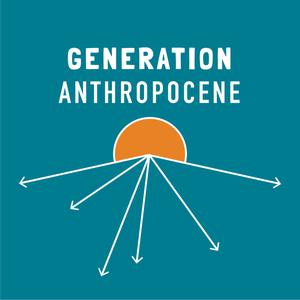
Generation Anthropocene
Generation Anthropocene
Stories and conversations about planetary change.…
- 56 minutes 42 secondsThe Nature of Intelligence
Humans tend to think that our intelligence is the most distinguishing trait of our species. Collectively our intelligence has given us god-like powers. But what exactly is intelligence, and how did it evolve? How do we measure intelligence in other species, and how might we use that information to protect organisms in the wild? Joshua Plotnik is a professor at Hunter College in New York, and he's part of a community of researchers who are re-examining some of these fundamental questions. Josh is also developing techniques to use measures of animal intelligence in order to test novel strategies for conservation.
Learn more about your ad choices. Visit megaphone.fm/adchoices
14 December 2022, 3:18 pm - 49 minutes 38 secondsThe Rescue Effect
The tone around conservation is often pretty heavy and it’s hard not to feel a sense of despair. But maybe there are opportunities in the world of conservation that we are not fully taking into account. The truth is, organisms and ecosystems have built-in defense mechanisms to respond to rapid change that might just be the secret to combatting the negative effects of the Anthropocene.
In his new book, The Rescue Effect, author Michael Webster explores the many ways in which nature is responding to disruption. And what he details has big implications for how we think about evolution and how we conserve and protect species.
This episode is sponsored by Magic Mind:
Try it today by going to https://www.magicmind.co/genanthro and use my code “GENANTHRO20" for 20% off all orders and for a limited time 40% off a subscription!
Learn more about your ad choices. Visit megaphone.fm/adchoices
3 November 2022, 6:20 pm - 46 minutes 21 secondsPlanet Texas, Ep1
Today's episode is a cross-promotion with the Planet Texas podcast. We are featuring the first episode of the series.
The Ogallala Aquifer is the biggest aquifer in North America, and it accounts for more than 30 percent of all agriculture in the United States. And… it’s running out of water. Climate change is making the naturally hot and dry climate of the Texas Panhandle even worse. Farmers are working desperately to keep their crops alive, and the secret to survival is adaptability.
Learn more about your ad choices. Visit megaphone.fm/adchoices
14 October 2022, 8:00 pm - 1 hour 1 minuteHuman Origins
As a species, our intelligence is probably the single most important quality that sets us apart from every other organism that has ever lived. But it’s not so much our abilities as individuals, but rather it’s our collective and accumulated knowledge. All of the drivers of the Anthropocene are only possible because of our capacity to transfer knowledge down through generations. So when exactly did that process begin? When did we start to behave in a way that was fundamentally “human,” and can we shine light on the process of intergenerational knowledge transfer? Professor April Nowell is a cognitive archeologist at the University of Victoria who studies the lives of Ice Age children. In this conversation she helps us hone in on some of the key moments in the deep past where humans started acting in a fundamentally new way, and began to set the stage for growing into a geologic force.
Learn more about your ad choices. Visit megaphone.fm/adchoices
21 September 2022, 2:20 pm - 49 minutes 48 secondsBunkers and Preppers
What the subcultures of Preppers can teach us about preparing for environmental destruction.
Learn more about your ad choices. Visit megaphone.fm/adchoices
10 August 2022, 6:00 am - 25 minutes 59 secondsCybel
On today’s episode we’re bringing you something special and a little different: A science fiction short story. It’s weird, and cool, and is, in a way, very much about the Anthropocene. Anyway, it’s fun! Written and sound designed by Brandon Buerk with help from Jackson Roach, and read by Nick Weiler.
Learn more about your ad choices. Visit megaphone.fm/adchoices
21 July 2022, 10:00 am - 1 hour 1 minuteFamous and Gravy's Emblem of Dignity
Today's episode is a cross-promotion with a new podcast by Michael Osborne called Famous and Gravy.
This person died in 2013 at age 95. His given name translates colloquially as “troublemaker.” The question most often asked about him was how, after all he’d been through, he could be so evidently free of spite. In 1956, he was arrested on charges of treason. He was a symbol of the opposition to apartheid in South Africa. Today’s dead celebrity is Nelson Mandela.
Famous & Gravy official website
Follow us on Twitter
Stalk us on Facebook
Make business with us on LinkedIn
Learn more about your ad choices. Visit megaphone.fm/adchoices
1 July 2022, 8:31 pm - 45 minutes 54 secondsElizabeth Kolbert
Support us on www.patreon.com/genanthro
It's hard to avoid the sense of despair that surrounds the story of climate change – and for that matter the story of the Anthropocene. It can all feel so hopeless. So, who is responsible for the weight of these feelings? What responsibility lies with the scientists and journalists who are bringing us the hard truth? Elizabeth Kolbert is one of the premier science journalists living today, and in this conversation she confronts that question head on. And, of couse, we also talk about the Anthropocene.
Learn more about your ad choices. Visit megaphone.fm/adchoices
3 June 2022, 2:12 pm - 21 minutes 46 secondsChristians and Climate Change
For as long as climate change has been an issue, the Evangelical Christian community has generally either downplayed the threat, or denied it altogether. In the last decade, however, more and more Evangelicals are coming around, and are even voicing support for meaningful action. So what's changed? In this episode, Kyle Meyaard-Schaap offers some ideas for why this shift is happening, and how climate change and Christian values aren't as disparate as they might seem.
Support us on Patreon at www.patreon.com/genanthro
Learn more about your ad choices. Visit megaphone.fm/adchoices
13 May 2022, 10:23 am - 38 minutes 47 secondsBill McKibben
Find merch and support the show through our Patreon: https://patreon.com/genanthro
With his landmark book, The End of Nature, Bill McKibben was one of the first journalists to start writing about climate change for a mass audience. He's since become one of the most prominent American environmentalists of our time. With his most recent endeavor, Third Act, he's trying to mobilize the older generation that drove the political and social change of the 1960s. This episode, published on Earth Day 2022, marks the 10 year anniversary of Generation Anthropocene.
Learn more about your ad choices. Visit megaphone.fm/adchoices
22 April 2022, 9:02 am - 54 minutes 14 secondsThe Love Canal
In the late 1970s, in a neighborhood just downstream from Niagara Falls, an environmental disaster slowly came to light. In so many ways, it turned out to be a true life horror story. And, as it turns out, the story of the Love Canal also has a lot to teach us about the environmental crises we face today. In his new book, Paradise Falls, author Keith O'Brien chronicles the activists and scientists who raised the alarm to the highest levels of corporate and political power. This is a must read (and a must listen) for environmental scientists and activists everywhere.
Learn more about your ad choices. Visit megaphone.fm/adchoices
15 April 2022, 12:04 pm - More Episodes? Get the App
Your feedback is valuable to us. Should you encounter any bugs, glitches, lack of functionality or other problems, please email us on [email protected] or join Moon.FM Telegram Group where you can talk directly to the dev team who are happy to answer any queries.
 Hidden Brain
Hidden Brain
 Threshold
Threshold
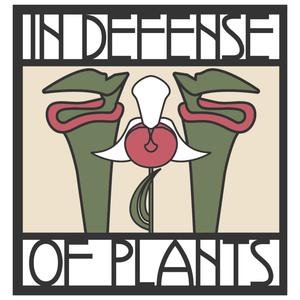 In Defense of Plants Podcast
In Defense of Plants Podcast
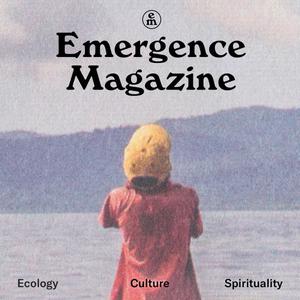 Emergence Magazine Podcast
Emergence Magazine Podcast
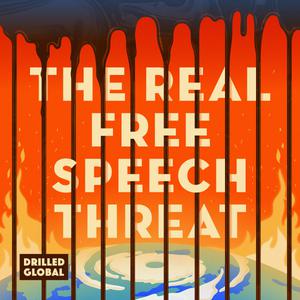 Drilled
Drilled
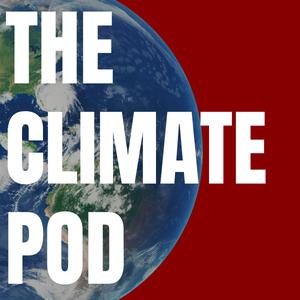 The Climate Pod
The Climate Pod